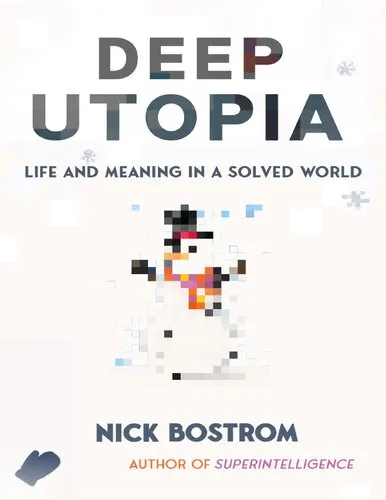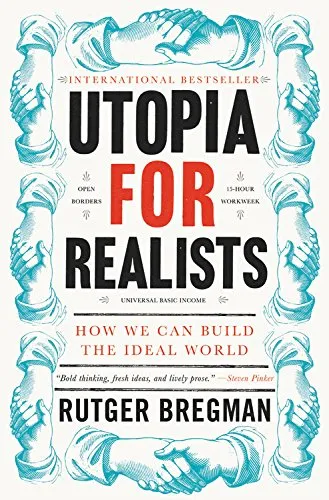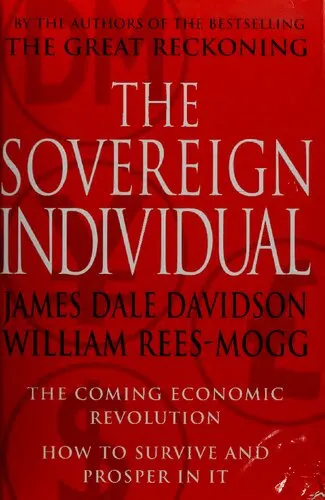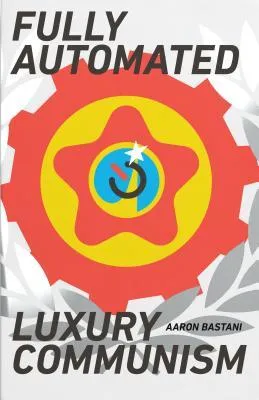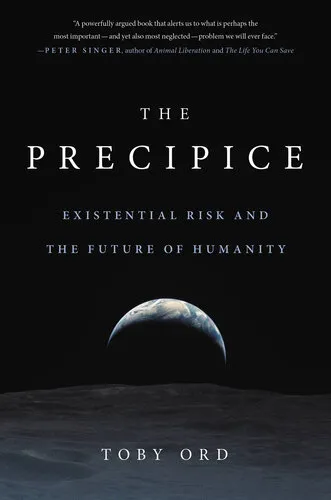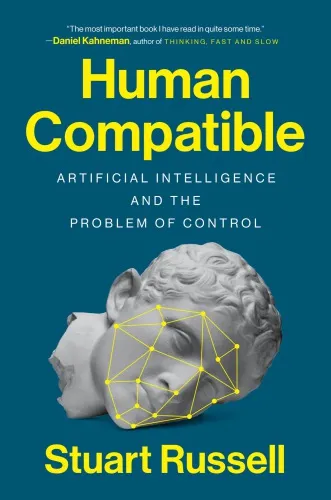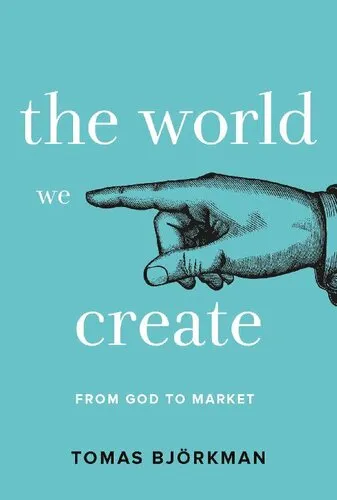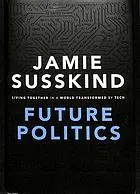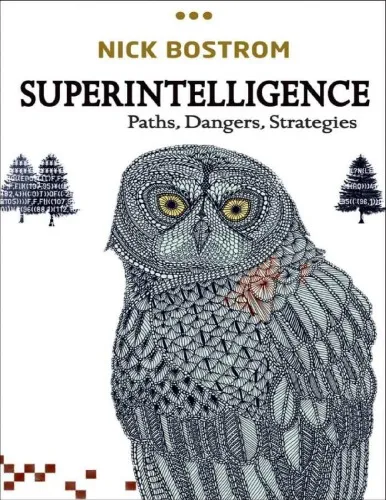Deep Utopia - Life and Meaning in a Solved World
5.0
Reviews from our users

You Can Ask your questions from this book's AI after Login
Each download or ask from book AI costs 2 points. To earn more free points, please visit the Points Guide Page and complete some valuable actions.Related Refrences:
Persian Summary
Deep Utopia - Life and Meaning in a Solved World A Vision for a Better Future
In "Deep Utopia - Life and Meaning in a Solved World" philosopher and futurist Nick Bostrom explores the possibilities of a world where all major problems have been solved and humanity has reached a state of unparalleled prosperity and happiness. This thought-provoking book challenges readers to think critically about the human condition the nature of existence and the ultimate meaning of life.
Summary
In "Deep Utopia" Bostrom delves into the concept of a "solved world" where humanity has overcome all significant challenges including poverty disease war and environmental degradation. He explores the potential implications of such a world on human existence relationships and individual fulfillment. Through a series of philosophical and thought-provoking discussions Bostrom examines the possibilities of a world where technology has advanced to the point of near-singularity and humanity has achieved a state of unparalleled prosperity and happiness.
Bostrom argues that a solved world would require a fundamental transformation of human values social structures and individual aspirations. He contends that the traditional drivers of human motivation such as the pursuit of wealth status and power would need to be reevaluated in a world where all basic needs are met. Instead humans would need to find new sources of meaning and purpose such as personal growth creative expression and contributions to the greater good.
Throughout the book Bostrom engages with a wide range of philosophical and scientific perspectives from existentialism and humanism to artificial intelligence and astrobiology. He draws on the ideas of thinkers such as Friedrich Nietzsche Martin Heidegger and Eliezer Yudkowsky and explores the potential implications of emerging technologies on human society.
Key Takeaways
Bostrom's "Deep Utopia" offers several key takeaways for readers including
- A vision of a world where all major problems have been solved and humanity has achieved a state of unparalleled prosperity and happiness.
- A philosophical exploration of the implications of a solved world on human existence relationships and individual fulfillment.
- A critical examination of the traditional drivers of human motivation and the need for new sources of meaning and purpose in a world where all basic needs are met.
- A discussion of the potential implications of emerging technologies such as artificial intelligence and astrobiology on human society.
- A call to action for readers to think critically about the human condition the nature of existence and the ultimate meaning of life.
Famous Quotes from the Book
Some notable quotes from "Deep Utopia" include
"A solved world would be a world in which the problems that have traditionally driven human progress poverty disease war and environmental degradation have been overcome. But it would also be a world in which the traditional drivers of human motivation the pursuit of wealth status and power would need to be reevaluated."
"The greatest challenge of a solved world would be to find new sources of meaning and purpose. For in a world where all basic needs are met the traditional drivers of human motivation would no longer be sufficient."
"The possibility of a solved world raises fundamental questions about the human condition the nature of existence and the ultimate meaning of life. It challenges us to think critically about what it means to be human and what we want to achieve in life."
Why This Book Matters
"Deep Utopia" matters for several reasons
Firstly it offers a vision of a better future where humanity has overcome all significant challenges and achieved a state of unparalleled prosperity and happiness. This vision has the potential to inspire and motivate individuals to work towards creating a better world.
Secondly it challenges readers to think critically about the human condition the nature of existence and the ultimate meaning of life. This has the potential to promote personal growth self-awareness and a deeper understanding of the world and our place in it.
Thirdly it explores the potential implications of emerging technologies on human society and raises important questions about the impact of these technologies on human relationships individual fulfillment and the greater good.
Overall "Deep Utopia" is a thought-provoking and insightful book that challenges readers to think critically about the possibilities of a better future and the implications of emerging technologies on human society.
Free Direct Download
You Can Download this book after Login
Accessing books through legal platforms and public libraries not only supports the rights of authors and publishers but also contributes to the sustainability of reading culture. Before downloading, please take a moment to consider these options.
Find this book on other platforms:
WorldCat helps you find books in libraries worldwide.
See ratings, reviews, and discussions on Goodreads.
Find and buy rare or used books on AbeBooks.
3809
بازدید5.0
امتیاز1
نظر98%
رضایتReviews:
5.0
Based on 1 users review
merkousha
April 23, 2024, 2:33 p.m.
Evolving Workweeks and Utopian Futures: Exploring Economic Predictions from Keynes to Bostrom
John Minard Keynes, perhaps the most prominent economist of the 20th century, has predicted in his book “Economic Possibilities for Our Grandchildren” that in 100 years his wealthy descendants only need to work 15 hours per week. The book had been published in 1930 and we are close to its one hundredth anniversary. The prediction has not happened quite precisely. However it is true that the working hours have been diminishing steadily. In the developed countries, in the late 19th century average working hours were 60 hours per week. Nowadays, the weekly working hours are less than 40 hours in developing countries. What would happen in the next hundred years? There are very different approaches to this question, some are very pessimistic, suggesting that there is a possibility that the human race would be wiped out of the planet. The other approach is very optimistic. What if AI becomes so powerful and so beneficial that it takes care of everything? This would bring the cost of all the economically valuable works to zero. That is literally an Utopia by definition.
Nick Bostrom tried to answer this question in his new book named “Deep Utopia”. Mr. Bostrom talks about the “post scarcity” era in which there are not any limits for whatever we need or consume. This however might not be completely true. There are large physical limitations to humans, especially by the limitation of land. Space exploration might be a solution here.
There is another limitation, “positional goods”. Even if the AI excels in art, literature and music and surpasses human potential. There is a good possibility that people put greater value to the works of their fellow human beings. Same has happened before. When cameras became widespread in the 19th century. People thought that painting portraits would lose their value and eventually there was no need for this craft. As cameras are even more precise. However, this did not happen. Paintings, both portraits and landscapes became a luxury item which only wealthy people could afford. The same would happen, even if the AI bypasses the humans in art. The rich would pay hefty amounts for a good piece of art made by human artists. In fact this is a problem mentioned by economist Fred Hirsch in 1977. He argued in his book that as the wealth increases the greater fraction of human desires consists of “positional goods”.
Mr.Bostrom talks about the “paradox of progress”. Although most humans would like to have better conditions. If the technology becomes super abundant and cheap some people might go for drastic challenges like reengineering civilization or colonizing other plants. Economists for long assumed that human desires are unlimited and there are unlimited things people would like to consume.
Questions & Answers
Ask questions about this book or help others by answering
No questions yet. Be the first to ask!
